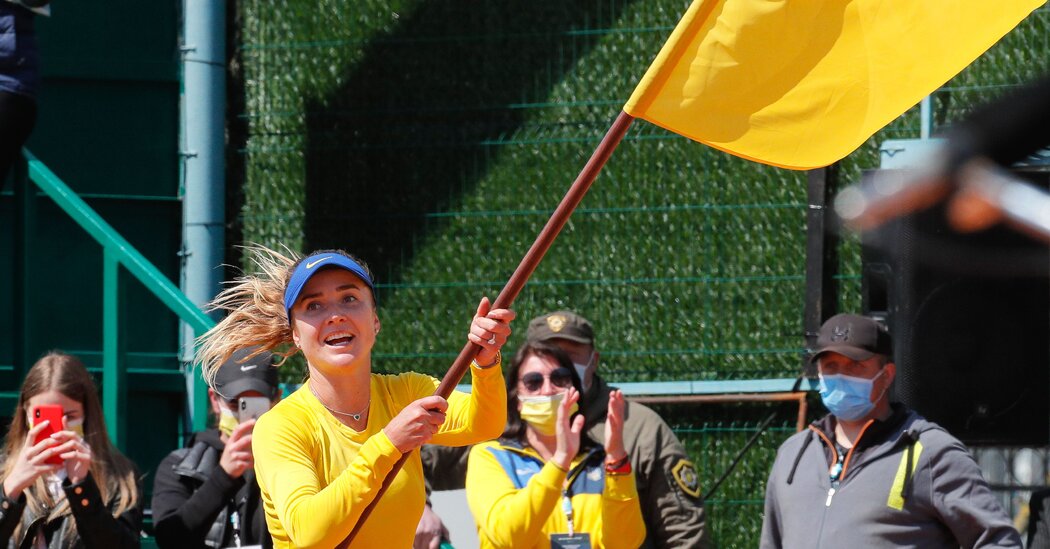
“I’m sure that they worked extremely hard to get back where they were and some of them are even better,” Svitolina said. “So that certainly gives me hope and motivation I can do the same.”
Svitolina’s only contact with tennis during her break came in July, when she served as the chair umpire in an exhibition to raise funds for Ukrainian children that was organized by Iga Swiatek, the young and increasingly outspoken world No. 1 from Poland.
Svitolina has appreciated Swiatek’s public support but remains disgruntled about the pro tours’ decision to allow Russian and Belarusian players to continue competing, albeit as neutrals without national identification. While Wimbledon barred the Russians and Belarusians because of the war it was an outlier and was stripped of ranking points in retaliation by both the men’s and women’s tours, who also fined the tournament and Britain’s Lawn Tennis Association.
“I was shocked to see this,” she said. “The U.K., they always supported Ukrainians; they helped so many Ukrainian refugees to find new homes. I think the tours should have respected Wimbledon’s decision rather than punish them, but it’s really hard to see what will change the tours’ position, even if I don’t agree or understand it.”
Through her personal foundation, she said she had been involved in helping more than 100 young Ukrainian players and their families find new training bases even if some have had to return to Ukraine. But she has no illusions about the challenge ahead and is all too aware of the destruction. She lived in her early teens in Kharkiv, recently reoccupied by Ukrainian forces but one of the cities that have suffered the most damage during the war. The arena in which she and her Ukrainian teammates once played Fed Cup matches has been destroyed by bombing.
“Our athletes and our sports have been thrown back at least four or five years, because all the stadiums, all the facilities in Ukraine were destroyed,” she said. “After the war is finished, I really want to help to build a tennis center that kids can use to train. And it’s not just facilities that were destroyed. I think our kids have mentally been destroyed as well. Some of them lose their parents. Some of them are homeless. They see these explosions, these shootings. A whole generation I think mentally is really facing a big struggle.”
It has been a year to rue but, for Svitolina, a year also to savor.
“The most horrible year with the war and also the most happy I would say with welcoming our first baby in October,” she said. “So, it’s a mixture of everything, but we are here right now, and for me it’s just important to do everything possible every single day that I can. And for now, the goal is for the Ukrainian people to at least have a little light in their lives.”




